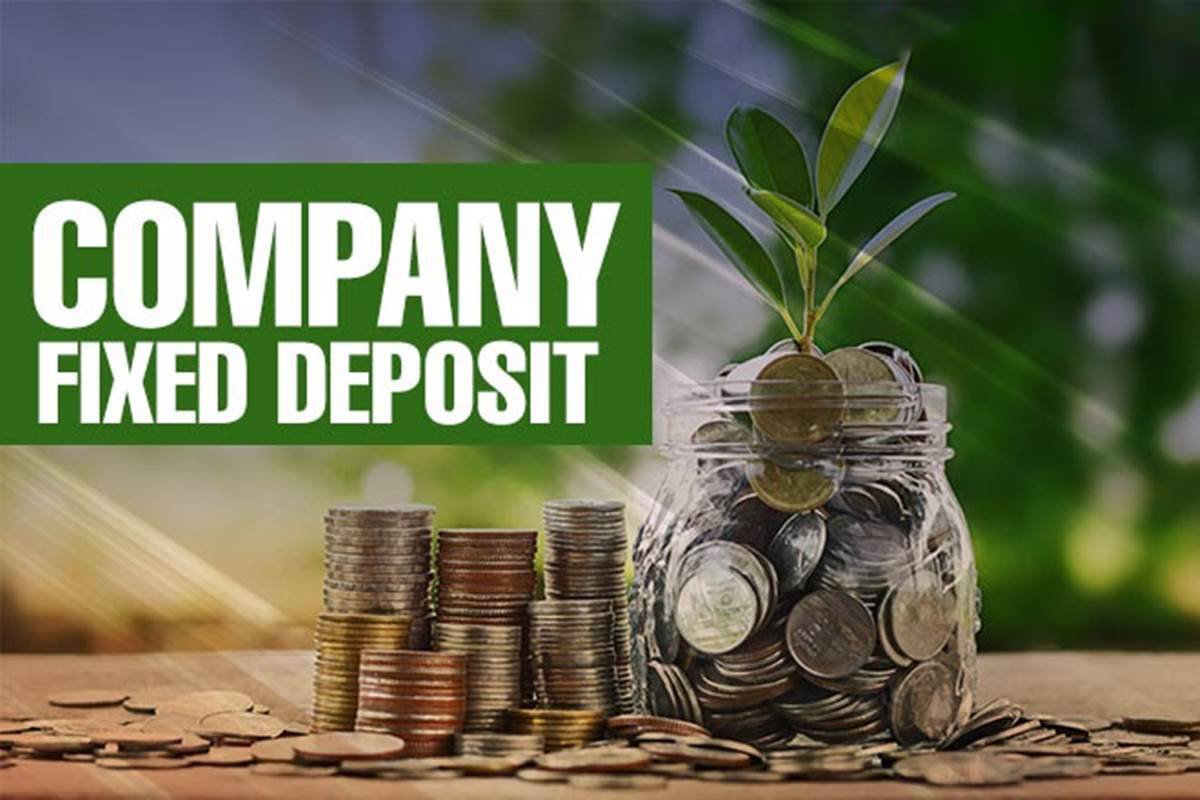
Corporate FD
A corporate fixed deposit (corporate FD) is a term deposit kept for a set period of time at a set rate of interest. Financial and non-banking financial institutions offer company fixed deposits (NBFCs). Fixed deposits issued by companies can have maturities ranging from a few months to a few years.
To meet your investment needs, choose from a variety of company fixed deposit choices with varied tenures, interest rates, and institutions. With a large choice of AAA and AA-rated Company Fixed Deposits, you may get consistent returns with less volatility.
The Advantages of Corporate FDs
GREAT RETURNS When compared to bank FDs, Corporate FDs offer better returns..
FLEXIBILITY Choose from a number of tenures for Corporate FDs, including monthly, quarterly, half-yearly, and yearly.
LIQUIDITY Corporate FDs offer more liquidity and have a shorter lock-in time than Bank FDs.
LOWER RISK Take advantage of lower risks with Corporate FDs backed by reputable rating agencies.
Tips for selecting a Corporate FD
Before investing in Corporate FD schemes, keep these points in mind.
Credit Score: Choose higher-rated corporate FDs based on the credit rating, which shows the company’s underlying risk.
Background of Company: Examine a company’s financial statements and management discussion and analysis to determine its viability.
History of Repayment: The payback history of a corporation is used to establish its credit score, reliability, and stability.
Why Should you Invest in Corporate Fixed Deposits?
Fixed Deposits are a popular and preferred deposit option for investors seeking consistent profits. When most people think of Fixed Deposits, they think of banks, however there is another choice in FDs outside banks. These are referred to as Corporate FDs, and they offer higher interest rates than bank FDs. These, however, are unsecured and not backed by any assets.
The investor puts down a big sum of money in a fixed deposit and subsequently earns interest on it on a regular basis until the Fixed Deposit matures. The term “maturity” refers to the length of time for which an investor invests money. Bank FDs are the most common, however other organisations, like banks, can also collect money in Fixed Deposits. Corporates, NBFCs, and financial institutions are among those who raise funds for current or future activities.
It’s essential to understand how corporate fixed deposits work before investing in them.
What is the Role of Corporate FDs?
Fixed Deposits are money that corporations collect from people for a set period of time. This money is then put to use for that period of time, with the corporation paying a fixed interest rate to each person whose money is being used. Fixed Deposits are an easy way for a company to borrow funds for financial and manufacturing operations because they are unsecured loans. Furthermore, they are for a longer period of time.
Examine your insurance company
Is it possible for a company to raise funds using fixed deposits?
No, specific standards specify which companies are eligible to execute such capital-raising initiatives. The Reserve Bank of India (RBI) has published these guidelines under section 58A of the Companies Act (1956).
The money of the corporation is used, and then the interest rate is issued to the individuals on a regular basis until the maturity date. The money is repaid once the maturity date has passed, and individuals can reinvest it in a Fixed Deposit with the same company or with other companies and financial institutions.
Why Should You Invest in Corporate Fixed-Income Accounts?
Fixed Deposits in banks provide guaranteed returns because they are not tied to the market and are not influenced by it. Corporate FDs, on the other hand, are unaffected by market or interest rate swings. If a corporation offers a set interest rate, it remains constant regardless of market conditions or fluctuating interest rates.
Rates of interest
When compared to banks, corporate FDs offer the best interest rates. Corporate FDs can determine the optimum fit for a debt product when the investor requires better returns. These are unaffected by market performance or interest rate swings, and offer significantly higher returns than banks and other financial institutions.
Corporate FDs, like banks, provide assistance to senior folks. Senior citizens will discover stability and attractive periodic money here, which will make life easier for them. Furthermore, senior citizen interest rates are higher than banks schemes, making it a far more realistic option when investing in FDs.
Investing in the Short Term
Short-term investments are one of the key advantages of corporate FDs. Bank FDs can last anywhere from a few months to a few years, while corporate FDs are limited to five years, making them a suitable alternative for investors looking for significant returns in a short period of time.
Comparisons and ratings
Several companies provide FDs, but which one is the best for investing your money in a Fixed Deposit? This is a common issue, and investors can address it by checking corporate ratings from CARE (Credit Analysis and Research Limited), CRISIL (Credit Rating Information Services of India Limited), or ICRA (Investment Information and Credit Rating Agency of India Limited) and making an informed decision. These ratings are given to companies after a thorough examination of their financial records, repayments, and interest rates, which aid potential investors by providing a clear picture.
Business ratings come in a variety of formats, including AAA, AA, BBB, and more. The highest rating, AAA, indicates that an investor will be able to locate a possible money hive after investing in a company. This also allows investors to compare the company to others, and those with an AA or BBB rating should avoid investing.
Nominee
When investing in corporate FDs, investors have the option of selecting a nominee, which gives them a competitive edge. If an investor has a large sum in a corporate Fixed Deposit and dies unexpectedly, the nominee can take control of the account and take possession of all the funds.
Investing in Corporate Fixed Deposits? Make sure you're aware Before Investing
Corporate Fixed Deposits offer a better rate of return than bank FDs, but there are a few considerations that investors should evaluate before investing in Corporate FDs.
Comparison
Fixed Deposits are offered by a number of companies, but not all of them give the same interest rate; they differ, and the difference can be significant at times. Before investing, evaluate the companies and see whether they have superior CARE, CRISIL, and ICRA ratings. The highest possible rating is AAA.
Research
One of the most common mistakes made by investors is to just rely on the grading system. Investors should look into the company’s profitability and loss-making history. If the loss is a one-time or extraordinary occurrence, and the company’s track record is very good. For corporate FDs, it might be a fantastic investment opportunity. Furthermore, it is a good habit to be aware of the company’s plans and assess whether they will have a positive or negative overall impact.
Early Withdrawals
Premature withdrawals from FDs are usually penalised by most banks. This normally occurs three months after the initial investment. With Corporate FDs, the situation is the same, and there is a penalty for premature withdrawal. Before investing, it is best to understand the penalty.
Corporate FDs offer a terrific opportunity for individuals seeking higher returns, as well as diversifying their portfolio. They pay a higher rate of interest than bank FDs. They can be compared in terms of operations and ratings, making it easier to select a suitable corporate FD candidate.

